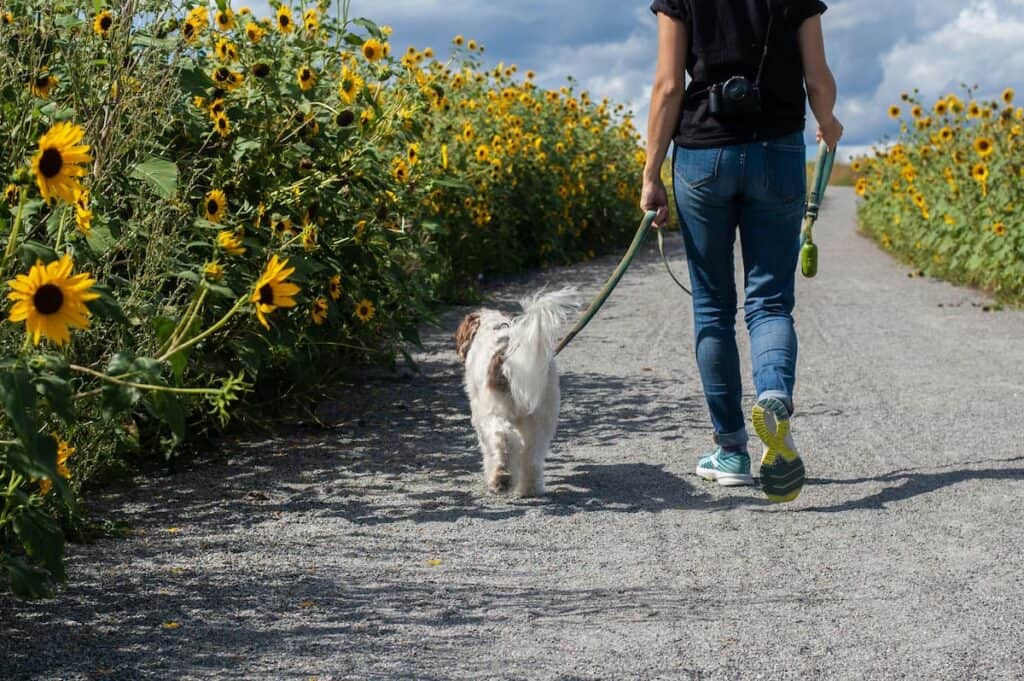Are you curious whether you need a license to walk dogs professionally in the UK? You are not alone. With so many passionate dog lovers across the country looking to turn their love for four-legged friends into a rewarding career, questions about official requirements are more common than ever. The truth is, when it comes to a dog walking license UK regulations can be a bit of a patchwork, depending on where you plan to walk. Let us unravel the official rules and clear up confusion, so you can focus on happy tails and wagging adventures whether you are just starting out or already have a pack of pups to care for.
Do You Need a Dog Walking License in the UK?
First things first: there is currently no national law that requires a dog walking license in the UK for all areas. That means, in most towns and villages, you can start a dog walking business without an official permit. However, it is not always that simple. Specific council-controlled spaces and well-loved parks, especially in London, may impose extra requirements.
For example, commercial dog walkers are required to secure a license in certain Royal Parks such as Hyde Park, Regent’s Park, and Richmond Park. The annual fee for a license is £300 (excluding VAT) in most cases, with a slightly lower rate for Richmond and Bushy Parks due to seasonal restrictions. These tailored rules help protect wildlife, preserve natural spaces, and support responsible dog care.
Where Will You Need a Dog Walking License?
- The Royal Parks: Dog walking professionals operating in landmark green spaces like Hyde Park and Regent’s Park need a commercial license, which also has requirements around the number of dogs walked at once and maintaining appropriate insurance.
- Hampstead Heath: This City of London-managed area requires a license, an annual fee, public liability insurance of at least £2 million, plus safety paperwork like risk assessments. This helps ensure the safety of both walkers and wildlife, especially during busy weekends.
- Certain Local Councils: Some councils have introduced voluntary schemes for commercial walkers, such as Swindon Borough Council’s program. These schemes promote best practice, support reputable businesses, and foster better relationships between walkers and the community. For an in-depth look at these council requirements, head to what UK councils require for dog walking licenses.
It is your duty as a professional to research your local requirements before you start walking dogs in a new area. This may seem daunting, but it ensures you avoid costly fines, misunderstandings with authorities, or unhappy clients. If building a compliant, successful business is your goal, our guide on how to start a dog walking business in the UK will help you cover every base.
Your Key Legal Responsibilities as a Dog Walker
Even if your area does not demand a license, every dog walker is still bound by laws that protect dogs, the public, and wildlife. It is your responsibility to ensure the dogs in your care – and the community around you – are always safe. Here are the core legal obligations you must meet:
- All dogs must wear a collar and ID tag with the owner’s name and address, including postcode, any time they are in a public place. This is an absolute must, and skipping it could lead to a hefty fine.
- Microchipping has been a legal requirement since 2016. All dogs, by the time they are eight weeks old, must be chipped and registered with accurate, up-to-date contact details. For more on official dog ownership laws, check UK dog laws for owners.
- Control around livestock: Allowing a dog to worry or chase livestock is an offence, and you as the walker may be fined or required to pay damages.
- Poop pick-up is non-negotiable. Always carry sufficient bags and clean up after your canine clients – this shows professionalism and care for your community.
Understanding Local Variations and Challenges
The UK presents a real mix of rules depending on local councils, green spaces, and even footpath types. For professional dog walkers, this patchwork is both a challenge and an opportunity. Navigating different regulations means planning ahead, whether you are exploring a new neighbourhood or venturing out during peak times like school holidays.
Seasonal restrictions are another major consideration. Royal Parks often tighten access for dog walkers during the deer birthing season, while the Countryside Code asks that dogs remain on a short lead from March to July to protect ground-nesting birds. If you love mixing up your routes and soaking up the sights – from bluebell-filled woods to rolling fields – being savvy about these rules will keep your reputation spotless. Seasoned dog walkers often share tips and favourite less-regulated routes with others in the local community, turning the learning curve into a reason to make new friends.
Countryside and Outdoor Codes: Respecting Wildlife and Access
If you take pups for a ramble in the countryside, it is essential to respect the responsibilities set out in the Countryside Code, the Scottish Outdoor Access Code, and local land rules. In England and Wales, keep dogs on a short lead on open country and common land between March and July. In Scotland, the rules focus on maintaining close control around livestock and wildlife, especially during breeding seasons.
Learning and abiding by these guidelines not only keeps your business on the right side of the law, but strengthens the trust between you, your clients, and the wider dog-loving community. For a detailed breakdown of UK countryside and walking guidance, read puppy and dog walking tips for public places.
Insurance and Professional Standards
Even where you do not need a license, best practice is to get professional dog walking insurance. Most councils and parks that do require licenses will expect proof of public liability insurance, generally minimum £2 million. This protects against accidents, injuries, or mishaps – and offers peace of mind for both you and your clients.
Insurance is not simply a formality. It is a sign you take the safety of your canine companions and their owners seriously. If you want insight on the right cover for your needs, our guide to essential insurance for UK dog walkers breaks down the basics and shows how professional insurance can help your business stand out.
Why Professionalism and Community Matter
Let’s face it: the dog walking world is bursting with joy – every puppy’s first sniff, every veteran’s familiar trot. Dog walkers do more than just exercise pets. You are a trusted presence, keeping a close eye on behaviour, safety, and community respect. That means staying up to date with rules, communicating openly with owners, and setting a shining example for others using parks and paths.
Building rapport with other dog lovers, businesses, and park rangers not only keeps you in the know about seasonal or temporary restrictions – it also fosters a true sense of community spirit. Many of the best dog walkers become local legends, known for their warmth and reliability. In this welcoming atmosphere, everyone, dogs included, feels at home. If you are looking for ways to grow your business and nurture these connections, discover tips for attracting clients as a professional dog walker.
Frequently Asked Questions for UK Dog Walkers
- Do I need a license to walk dogs in every UK town? No, most towns do not require a dog walking license UK wide. Only specific councils, parks, or nature reserves may ask for one.
- What insurance do I need? Public liability insurance is strongly recommended and usually required if you wish to operate in regulated parks or under council schemes.
- Can I walk multiple dogs at once? This depends on the local authority or park. Many licensed areas set the upper limit at four dogs per walker.
- Are there penalties for breaking local rules? Yes. Council officers and park rangers can issue fines or ban persistent offenders. Always check local rules before heading out.
In summary, while there is no mandatory national dog walking license UK wide, certain parks and councils have their own rules, and every professional must meet basic legal obligations for dog safety and responsible public conduct. Prioritise research, invest in the right insurance, and cheerfully connect with your local dog community. That way, you will keep those tails wagging and your reputation sparkling bright. Whether you are just stepping out or managing a bustling pack, keeping up to date with the latest official rules is your passport to success in the wonderful world of UK dog walking.


